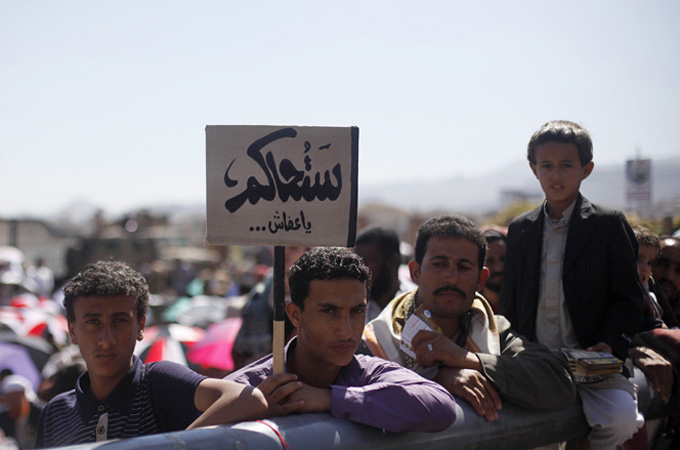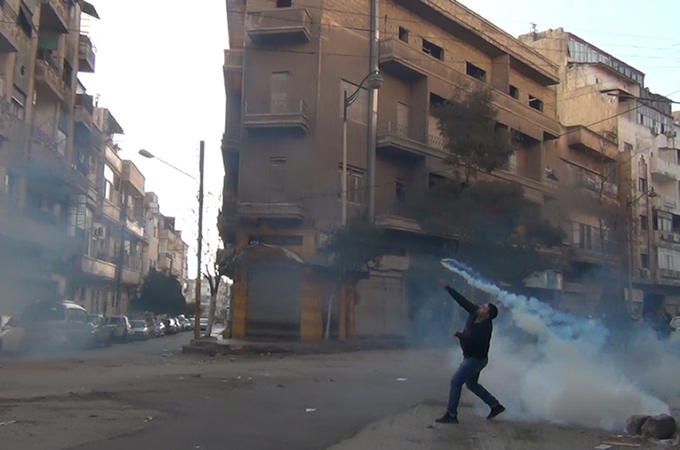By Tyler Yates
Impunity Watch Reporter, Middle East
SANA’A, Yemen — Protesters demonstrating outside of the Yemeni capital of Sana’a are demanding that outgoing president Ali Abdullah Saleh, as well as many of his compatriots, face trial for the killings of hundreds of protesters in what has so far been a 10-month uprising.

Similar protests are being held across Yemen in at least 18 other cities. Saleh supporters held a counter-rally near the presidential palace on Monday.
Saleh still holds the position of president, but he transferred his powers to his vice-President last month. In turn for stepping down, Saleh signed a deal granting him immunity from prosecution once polls are held in February.
Yemeni protesters have objected to this deal, which was brokered by Gulf Arab nations with the support of the United States. They feel that the deal does not allow for any true broad political changes, or provide any retribution against the crimes committed by Saleh and his loyalists.
“Our message to Ali Abdullah Saleh is there’s no guarantee or immunity for him,” said activist Mohammad Asal.
The government has issued a statement to the Yemeni people asking them to be patient as there will be some turnover time before the people’s demands can be considered by the newly appointed cabinet members.
Part of the deal with Saleh divides up ministerial positions in the government equally between members of Saleh’s government and the opposition. The presence of any members of the old government is what has many protesters again taking to the streets.
Some members of the opposition still suspect that Saleh is going to sabotage his political transition. Ali Mohsen al-Ahmar, a defected general, who has quickly become one of Saleh’s arch-rivals, notes the “continued bolstering of military units loyal to Saleh,” and the “refusal” by pro-Saleh troops to withdraw from the streets of Sana’a despite orders from the government as evidence of this.
In a statement published by Yemen’s official news agency, Saleh said he would “not allow the collapse of state institutions,” in response to the increased number of protests aimed at unseating his loyalists.
Saleh currently is attempting to travel to the United States for medical treatment on wounds suffered during an assassination attempt in June. This comes after a request to visit the United States to discuss the upcoming Yemeni election was denied
The United States is evaluating Saleh’s request for a visa. Washington is trying to ensure that Saleh is just coming to the country for medical aid and has no plans to stay.
Hundreds of people have been killed in Yemen since February.
For more information, please see:
Courier Mail — Yemen leader “plans to keep power” — 03 Jan. 2012
USA Today — Yemenis rally, demand president face trial — 01 Jan. 2012
Al Jazeera — Yemeni protesters demand trial of president — 31 Dec. 2011
AFP — Yemenis rally for Saleh trial despite shootings — 25 Dec. 2011



